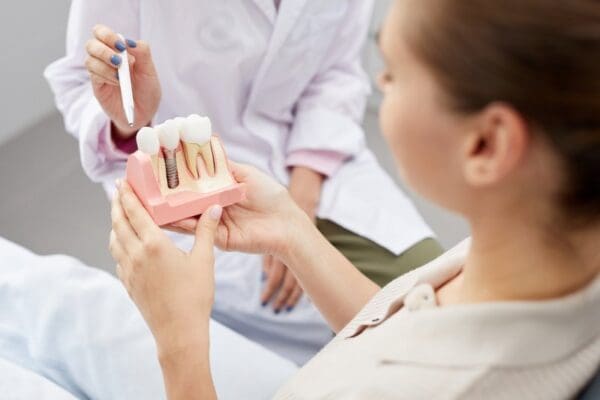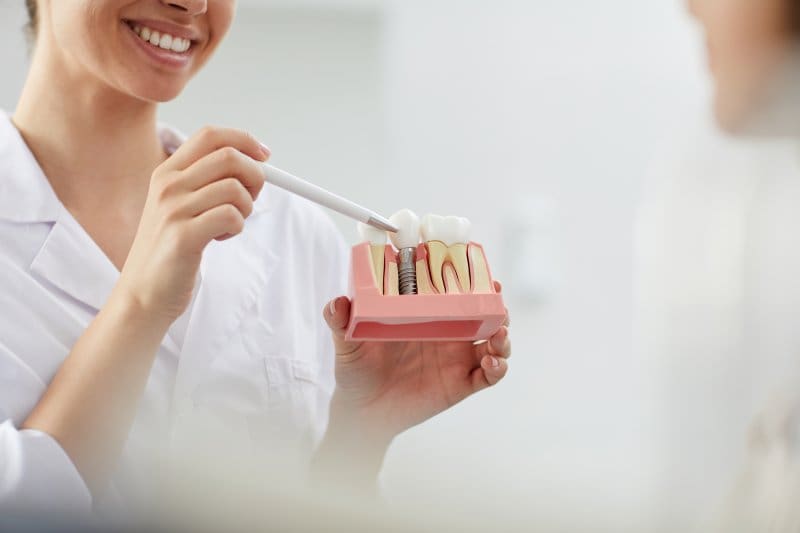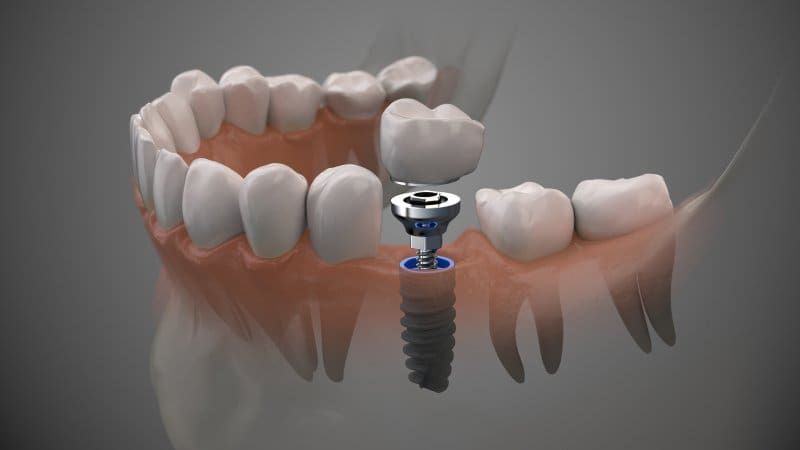Dental implants are often viewed as the modern gold standard for replacing missing teeth. However, in some cases, you may not be able to have them placed right away. Depending on your specific circumstances, certain preliminary treatments might need to be performed before you can receive your implant posts. Below are 4 examples of procedures that might be necessary if you wish to become a dental implant candidate.
1. Tooth Extractions
Dental implants aren’t just recommended for teeth that are already missing. They may also be suggested to replace teeth that are still in your mouth but are too badly damaged or decayed to be worth keeping. Of course, said teeth will need to be removed before they can be replaced – hence why you might require a tooth extraction prior to dental implant surgery. Some extractions are more complex than others, but rest assured that the appropriate measures will be taken to help you stay as comfortable as possible.
2. Bone Grafting
Many people with missing teeth lack the jawbone density required to support dental implants. This is because without the stimulation that natural teeth normally provide, the jawbone starts to deteriorate over time, losing its width and height. Fortunately, bone grafting can often be performed to rebuild the jawbone so it can support dental implants again. Note that it can take up to 8 months following a bone grafting procedure for the mouth to heal to the point where dental implants can be placed.
3. Sinus Augmentation
Replacing the upper molars with dental implants can be tricky. These specific teeth happen to be located very close to the sinus cavity. If any bone is lost in this area, the sinus cavity can easily end up too close to where the dental implant posts need to be placed. In this situation, a sinus augmentation (also known as a sinus lift) is typically required. This procedure is similar to bone grafting, but it has the added benefit of moving the sinus cavity upward and away from the intended implant site.
4. Gum Disease Treatment
Untreated gum disease can cause serious problems for dental implants. In fact, it’s one of the leading causes of dental implant failure. Thus, it’s best to have gum disease treated before you move forward with the process of getting dental implants. This may involve scaling and root planing as well as other steps.
Not every patient will require one of these preliminary treatments before dental implants. The only way to find out for sure whether any of them are necessary in your case is to schedule a dental implant consultation with your dentist.
About the Practice
At Weston Dental Specialists Group, our patients can benefit from the expertise of multiple specialists, including a number of prosthodontists and a periodontist. Thanks to having so many specialists under one roof, we’re able to offer start-to-finish dental implant procedures as well as bone grafting, sinus augmentation, and more. To schedule a consultation at our practice, visit our website or call (781) 894-0347.







